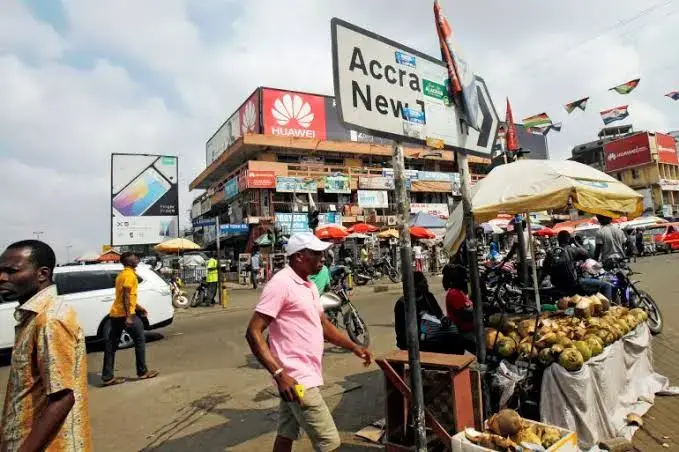
Ghana Slashes Interest Rate by 3% as Inflation Drops and Cedi Strengthens

Ghana’s central bank has cut its benchmark interest rate by 3 per cent, citing easing inflation and renewed economic optimism as the country continues its recovery from a deep economic crisis.
In a statement released on Wednesday, the Bank of Ghana announced a reduction of its policy rate from 28 to 25 per cent, the first such cut in over a year. The move signals a shift in monetary policy as inflationary pressures subside and the Ghanaian cedi gains ground against the US dollar.
We remain committed to our price stability mandate while creating the conditions for sustainable growth,” said Bank of Ghana Governor Johnson Pandit Asiama at a press briefing in Accra.
The rate cut follows a steady decline in inflation, which fell to 13.7 per cent in June on a year-on-year basis, marking the sixth consecutive monthly drop. Though prices continue to rise, the slowing pace offers relief to a nation that has faced months of economic turmoil, rising living costs, and currency depreciation.
A major producer of cocoa and gold, Ghana has seen its cedi strengthen significantly in 2025, appreciating by over 40 per cent against the dollar since January. This rally has been underpinned by higher export earnings, improved external reserves, and growing investor confidence in the government’s economic reform agenda.
President John Mahama, who took office in January, has spearheaded reforms and a debt restructuring programme backed by the International Monetary Fund.
The IMF noted earlier this month that Ghana is making “significant progress” toward macroeconomic stability. However, the IMF urged the Bank of Ghana (BoG) to reduce its interventions in the foreign exchange market. While market-friendly transparency is welcome, this push risks abandoning the cedi to wild volatility and deepening the economic hardship on everyday Ghanaians.
Food inflation, however, remains elevated. In July, it stood at 16.3 per cent, still above the headline inflation rate. The impact of high food prices continues to weigh on household budgets, despite a recent stabilisation in costs.
Meanwhile, in Nigeria, the Monetary Policy Committee of the Central Bank of Nigeria (CBN) opted to hold its key interest rate steady at 27.50 per cent in May, marking its second consecutive rate hold in 2025.
CBN Governor Olayemi Cardoso announced during a press briefing in Abuja, signalling a cautious approach amid persistent inflationary concerns for the country’s economy.
Read Also: The Cost of Uncertainty: Why Global Visa Reforms are Long Overdue
About The Author
Related Articles
AES Condemns Niamey Airport Attack, Warns of Coordinated Destabilisation
The Alliance of Sahel States has strongly condemned the armed attack on...
ByWest Africa WeeklyFebruary 2, 2026Mali Cedes Strategic Land to Guinea to Deepen Trade Cooperation
Mali has approved the transfer of a strategic parcel of land to...
ByWest Africa WeeklyFebruary 2, 2026Senegal to Appeal CAF Sanctions After AFCON Final Controversy
Senegal has announced plans to formally appeal the sanctions imposed by the...
ByWest Africa WeeklyFebruary 2, 2026Burkina Faso Takes Legal Step Toward Nuclear Energy Development
Burkina Faso has voted to join the Vienna Convention on Civil Liability...
ByWest Africa WeeklyFebruary 2, 2026












Leave a comment